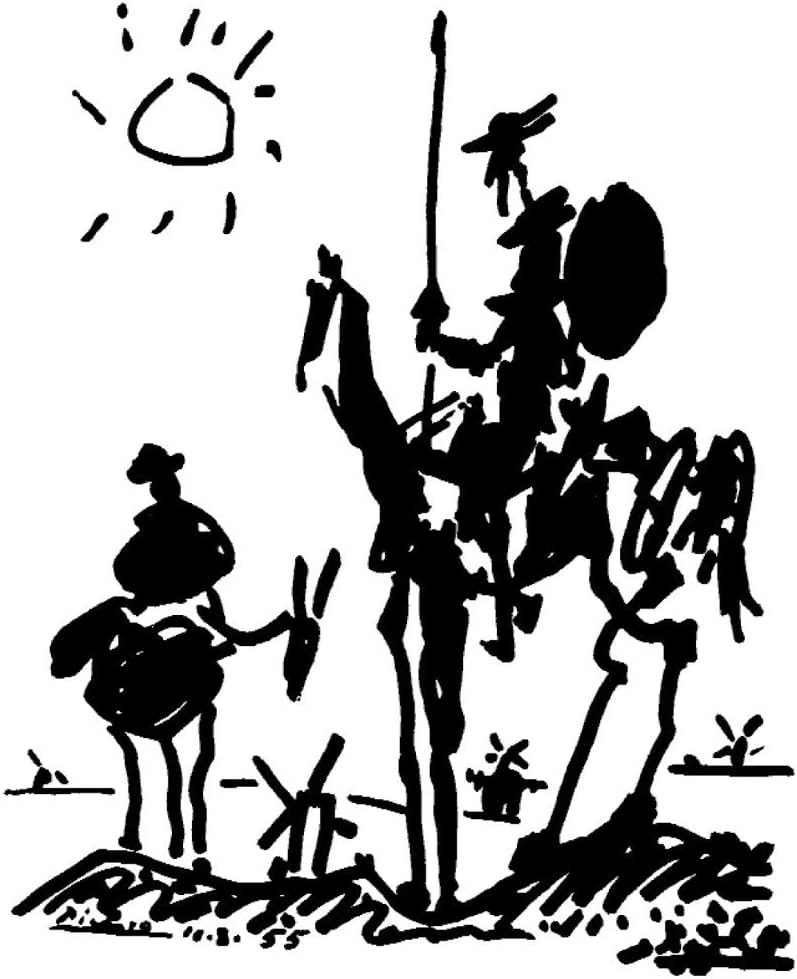Don Quixote was born in a tumultuous time. Christian Europe had taken back the Spanish peninsula and the European continent was transforming from warring fiefdoms with knights wielding swords to warring nation-states with infantry wielding pikes.
When Cervantes created the timeless “Man of La Mancha” (1605) in Habsburg Spain, tales of knights and courtly love which had been the exclusive form of secular entertainment for a thousand years were losing their relevance. Such courtly tales equated love with intense emotion and dialogue, inspiring the hero to deeds of honor.
The “fireside confession of love” is a standard, set-piece in knightly stories of courtly love. “Star Wars” includes a heavy dose of chivalric themes and provides the best cinematic example of this “lovers-at-fireside” trope. Try to ignore the cringy, awkward chemistry between these two distractingly beautiful actors.
Don Quixote is thus a literary burlesque of chivalric romance and makes Quixote a tragic figure seeking individual salvation as a Man of Honor in a time of community collapse. In such a world Don Quixote appears demented, but I believe Cervantes means for Quixote to represent the last sane man in a world gone mad.
This tragic interpretation of Quixote is, I respectfully suggest, the one that inspired Richard Strauss’ eponymous 1897 tone poem.
Strauss’s Don Quixote
Richard Strauss was a musical storyteller and prolific composer of operas and tone poems like Don Quixote. Although out of fashion, orchestral tone poems are essentially soundtracks to familiar tales, with individual instruments acting as characters telling the story.
BPO Principal cellist Roman Mekinulov portrayed our doomed hero and BPO violist Caroline Gilbert his faithful squire Sancho Panza. Music Director JoAnn Falletta introduced the musical narrative in her friendly, conversational style and the BPO gave an exemplary performance.
Mekinulov’s warm cello was a hero worth believing in and Gilbert’s sympathetic, trilling viola was never far away. Dissonant flutter-tonguing brass emulated bleating sheep and a steam-punk “wind machine” was employed to great effect.
The Spanish-themed concert opened with Rapsodie Espagnol (1907), which lacked energy and felt under-rehearsed. That said, the woodwinds were a highlight, executing Ravel’s demanding score in fine form.
The BPO’s performance of Don Quixote and Rapsodie Espagnol repeats Saturday, March 2, 2024 at Kleinhans Music Hall. Click here for more information.




